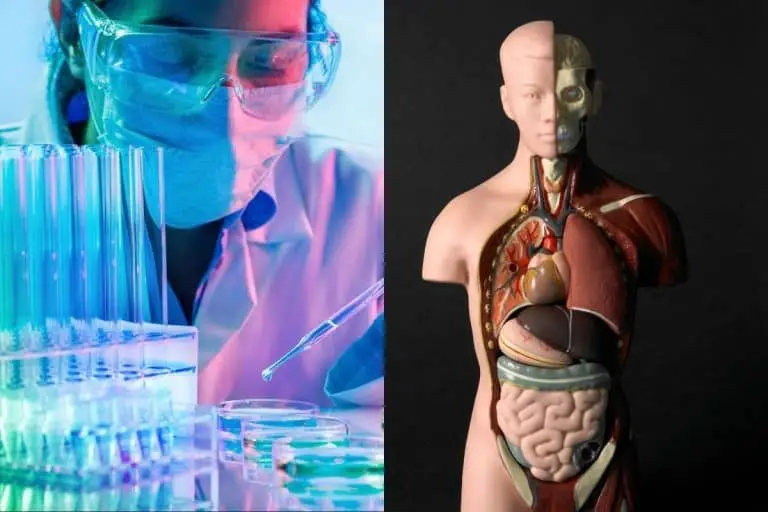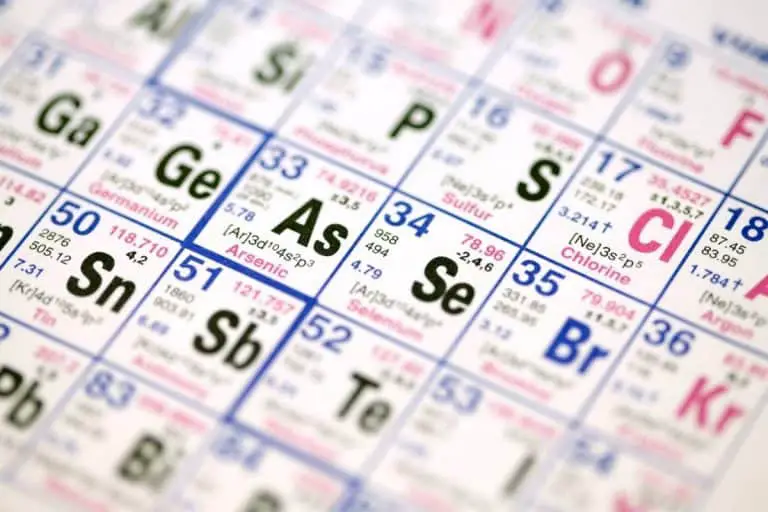Organic Chemistry or Anatomy: Which Is the Harder Course?
Organic Chemistry and Anatomy are two challenging courses, and both are required for most science and healthcare majors. But which is more difficult, and why?
As a general rule, Organic Chemistry is considered harder than Anatomy because it requires not just memorization but also calculations. However, the difficulty of the courses depends on the student’s learning style, study skills, and school resources.
This article will cover the differences between Organic Chemistry and Anatomy, which majors require the classes, and how to decide the order to take them. It will also discuss what makes each course challenging and provide guidance in determining which will be harder for you.

What Is the Difference Between Organic Chemistry and Anatomy?
The difference between Organic Chemistry and Anatomy is their subject matter, real-life application, and order in which they are taken. Organic Chemistry is the study of molecules, while Anatomy studies the human body.
Both are used in healthcare and science fields, but for different occupations. Students can decide which class to take first based on their prerequisite courses and schedule for that semester.
Let’s take a closer look at the specific differences between these two courses.
Organic Chemistry Courses
Organic Chemistry is the study of molecules and compounds. The molecules studied in this course are made primarily of hydrogen and carbon but cover other elements like silicon, oxygen, sulfur, phosphorus, and nitrogen.
In Organic Chemistry courses, you can expect lab work that involves testing synthetic methods and reactions and the properties and composition of the compounds (source). Whereas General Chemistry courses usually require more calculations, Organic Chemistry is considered a qualitative course.
Anatomy Courses
Anatomy is the study of the human body, including the skeleton, tissues, organs, muscles, and cells. In an Anatomy class, you can also expect to do lab work that includes a great deal of memorization.
Some Anatomy classes even observe human dissections.
The central theme of Anatomy classes is to discover how the human body works, including the individual body systems (source). Topics covered include the structure and function of each part of the body, how it maintains homeostasis or internal stability, and the organization of the systems.
What Majors Require Each Course?
Students majoring in science and health-related fields typically have to take both Organic Chemistry and Anatomy. Additionally, anyone applying to medical school is recommended to take at least one semester of each course, but usually more.
Source: University of California Berkeley
Organic Chemistry is used in a variety of fields, some surprising. Students interested in health care, agriculture, industrial production, and even cosmetics may need an Organic Chemistry class for their major.
Similarly, Anatomy is required for majors like nursing, occupational therapy, physical education, life sciences, and dental hygiene. Students need to excel in Anatomy to be accepted into most medical schools as well.
Which Subject Do You Take First in College?
It can be up to the student to decide which subject to take first in college. However, based on the prerequisites for each class, most students take Organic Chemistry first and Anatomy second. Usually, the courses are taken during sophomore or junior year, but not in the same semester.
The order in which you take the courses is up to you, but it usually isn’t recommended that you take them in the same semester. Because both classes are famously tricky, overloading your schedule might impact your grades for both.
Each course has several prerequisites. Before taking Organic Chemistry, most colleges require students to take two semesters of General Chemistry to give them an essential foundation for the course.
After taking Organic Chemistry, students can take higher-level courses like Biology, which are generally easier after taking Organic Chemistry (source). Similarly, Anatomy usually requires several prerequisites, including Biology courses.
Is Organic Chemistry Harder Than Anatomy?
Organic Chemistry is harder than Anatomy for many students, but that isn’t true for everyone. Anatomy uses mainly memorization, while Organic Chemistry requires memorization and application.
Because of that, the difficulty of each course depends on your learning style, your study skills, and your college’s resources.
Learning Styles
Both courses are known to be extremely difficult, which is why colleges recommend that students take them in the second or third year of school. However, they are different in terms of the type of learning required.
Anatomy involves primarily rote memorization.
Throughout the course, you will be required to memorize numerous parts and functions of the body, so if memorization is not a strong suit, it will likely be a challenge.
However, Organic Chemistry also requires a lot of memorization, plus applying that memorized information into calculations. With that, Organic Chemistry may be more difficult for students who struggle with mathematics. (See Does Chemistry Involve Math? Here Are the Facts).
Study Skills
As with all college courses, even if you aren’t a master of the skills in the class, studying is the best way to excel. Memorization will play a massive role in your success in either subject, so learning some study skills to improve memory will confirm which course is more demanding.
Additionally, because some math skills are required for Organic Chemistry, the study skills needed for that course will depend on your math understanding.
School Resources
You will have the easiest time with both courses if you take advantage of your school’s resources. Most universities offer study spaces, extra texts, and office hours.
For Organic Chemistry, office hours are critical. Visiting your professor’s office hours can help you understand some of the more challenging mathematical concepts in the course. You might also benefit from office hours when taking Anatomy, but it’s not as necessary because the course is more memorization-based.
Conclusion
Organic Chemistry and Anatomy are notoriously difficult courses for students of all majors, even mathematically-minded students. Because every student is different, there is no one answer for which is more challenging.
However, Anatomy requires a great deal of memorization, while Organic Chemistry involves memorizing and applying those ideas to calculations.
You might find Organic Chemistry harder or easier depending on your:
- Learning style
- Study skills
- Resources offered by your teacher or school
With that information, you can prepare to study hard and ace each class.
Recommended Reading:






